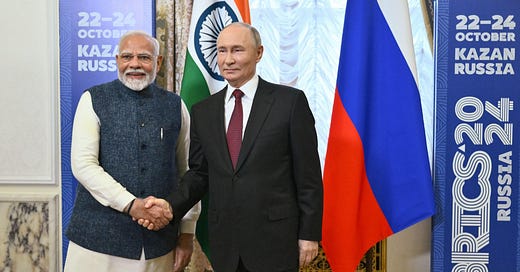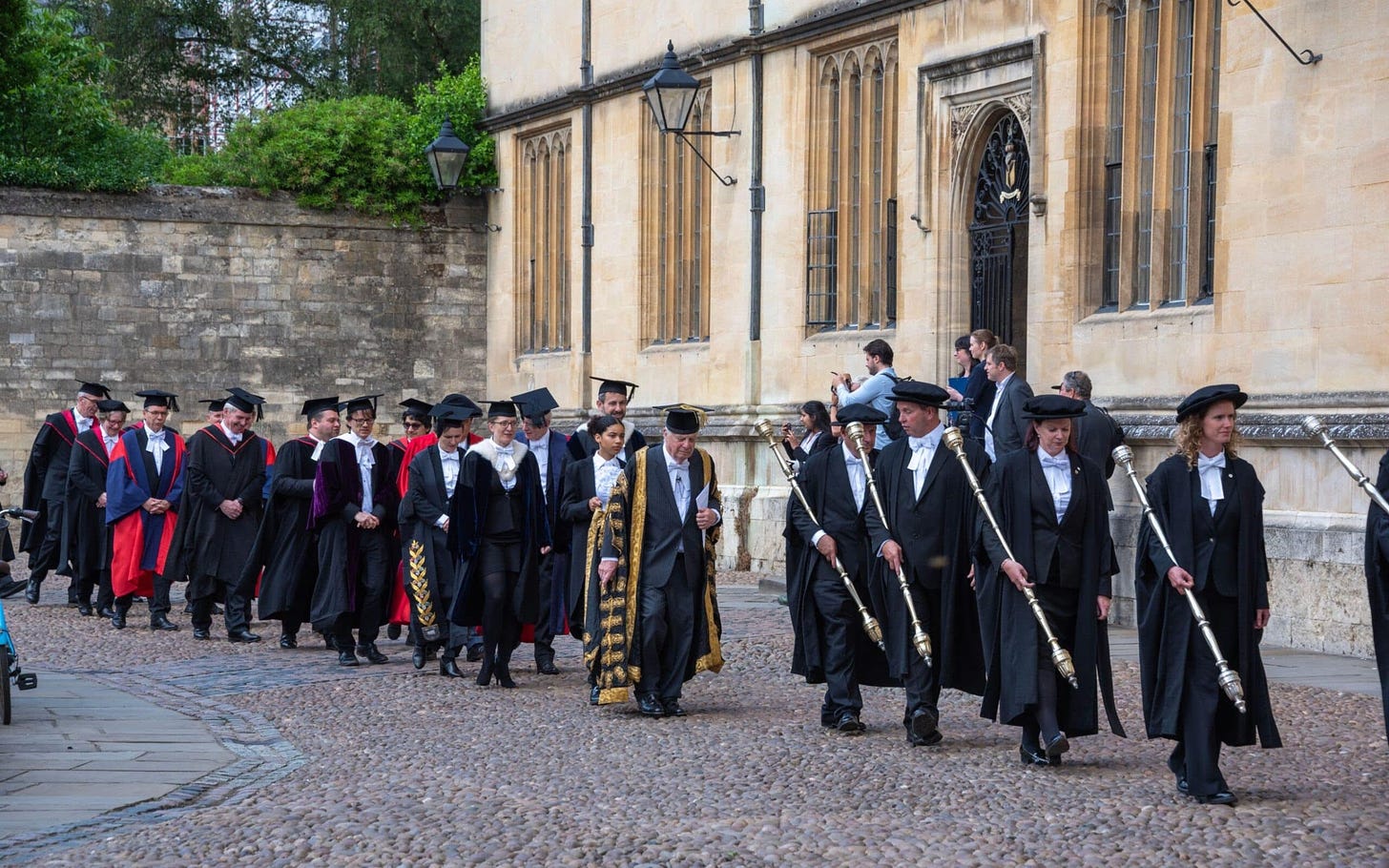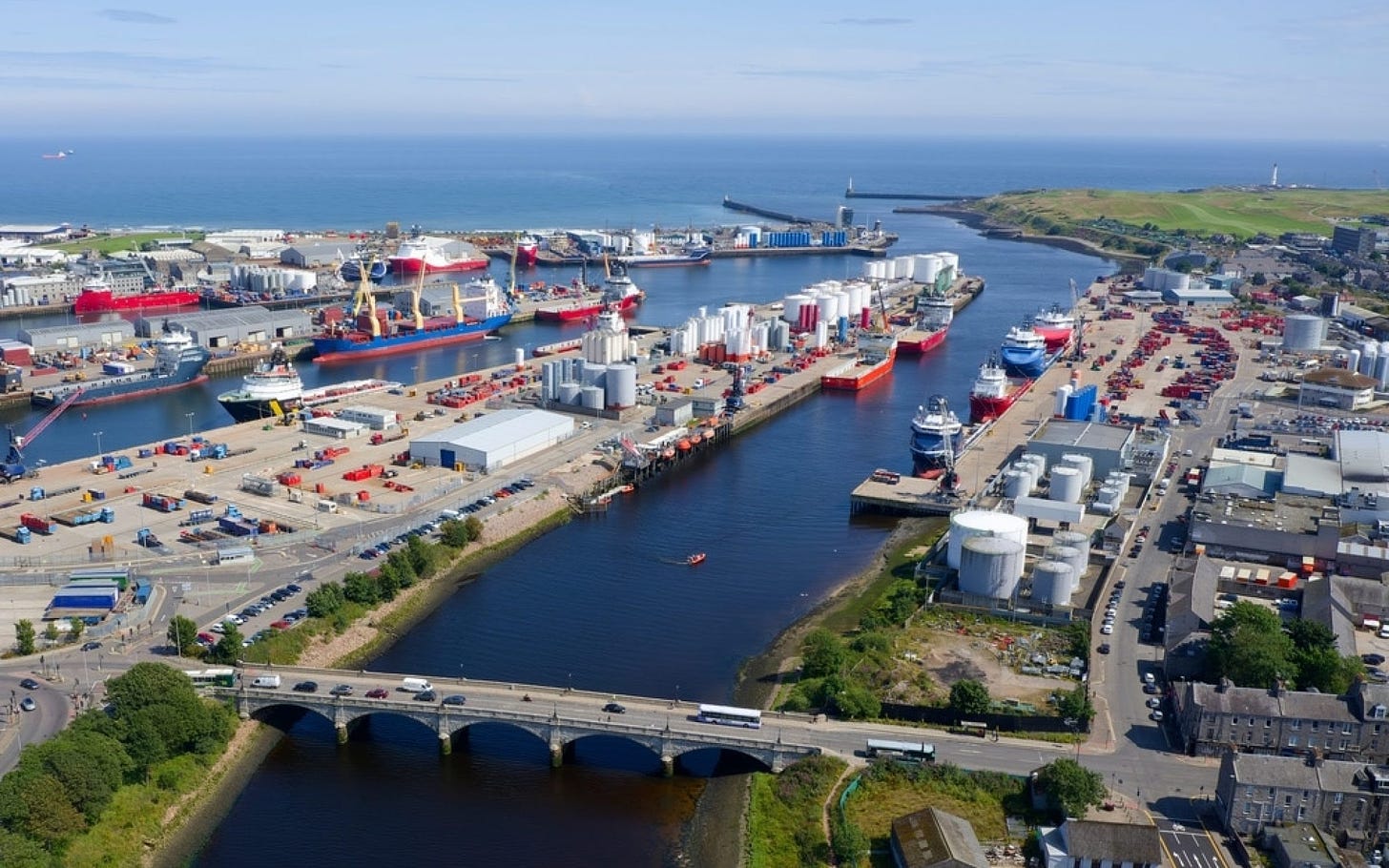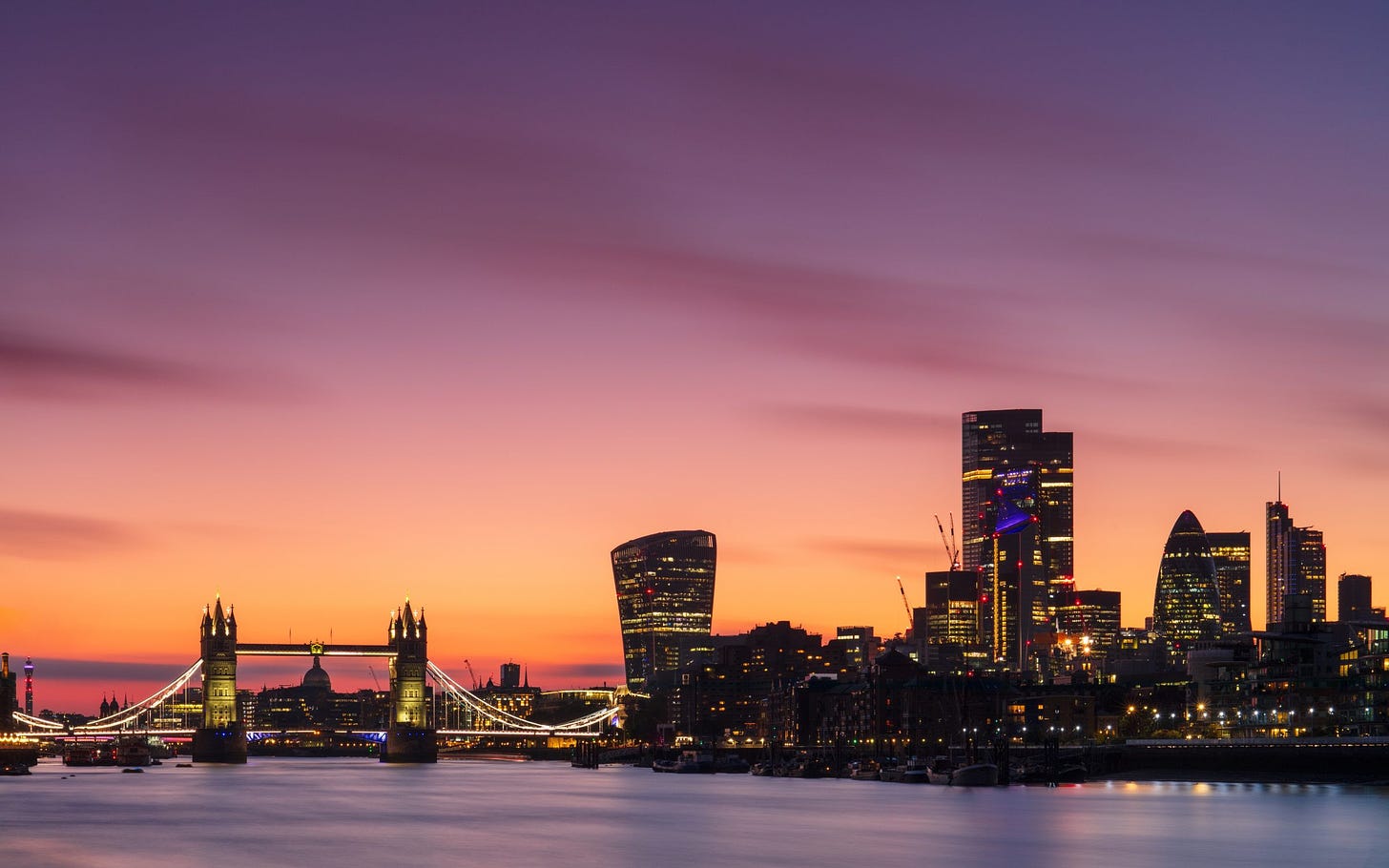A vision for a new economic order was presented to leaders representing 45 per cent of the world’s population and 36 per cent of its GDP at the 16th annual Brics summit today in Russia’s Kazan, writes Josh Schlicht.
China’s Xi Jinping, India’s Narendra Modi, and South Africa's Cyril Ramaphosa - along with many other notable leaders and heads of state - were welcomed to the secluded industrial city of Kazan in southwest Russia, far from the deadly frontlines of Kursk, to discuss strengthening multilateral cooperation within the non-western bloc.
Brics+, an informal coalition originally made up of Brazil, Russia, India, China, and South Africa, has been expanded to include Iran, Egypt, Ethiopia and the United Arab Emirates in recent years. Over forty nations, including Saudi Arabia, Turkey and Indonesia, are also considering membership.
The summit’s agenda includes strategising de-dollarisation, non-western finance alternatives, and increasing economic cooperation between the bloc’s members. A ceasefire in Ukraine is also likely to be discussed, but is far from a priority of the conference.
Modi, only a month after meeting with Zelensky, touted the summit as a “connect like no other” in a celebratory post on X. In a face to face with Putin, the Indian PM was filmed laughing and smiling ear to ear after the Russian autocrat joked that their “relationship was so tight he thought the Indian leader may understand him without translation”.
Brazil was curiously absent from the summit as Lula sidestepped the event due to an alleged head injury. Other notable leaders such as Ethiopia’s Abiy Ahmed, Egypt’s El-Sisi, and Iran’s Masoud Pezeshkian did not produce doctor’s notes, instead making the long journey to Kazan.
One British face also made an appearance, former MP George Galloway, who has a surplus of free time to curry favour with dictators after losing his Rochdale seat in July’s general election.
His attendance was overshadowed by the extremely controversial decision from another westerner, UN Secretary General António Guterres, to join the summit. Guterres has drawn ire from Israel – even receiving a ban from the country – in recent weeks for his strong opposition to Israel's bombardment of Gaza and Lebanon. His perceived moral high ground, however, will be hard to sustain as he embraces Putin, a leader he once accused of violating international law and “unleashing a nexus of horror” upon Ukraine.
Guterres's trip to Kazan demonstrates that the West’s influence over the highest chambers of international organisations is fading.
Many critics of Brics believe there is nothing to fear, referencing the seemingly insurmountable geopolitical and cultural differences within the bloc. However, events surrounding this year’s summit indicate that some of those differences may be easier to overcome than western analysts had hoped.
On the eve of the conference, India and China claimed their long-standing border dispute will be put to rest in order to increase trade and calm tensions. Other hostile relationships which looked likely to undermine Brics, such as those between Iran and Saudi Arabia, have been soothed over by Chinese efforts to broker détente.
That said, Arab-Persian normalisation is far from finalised and other unresolved feuds between bloc members, for instance Egypt and Ethiopia, could still jeopardise the formation before it truly takes shape.
Putin, who is not oblivious to the complexities at play, has set his sights on a few achievable goals for this week's conference. Chief among these is getting other members to accept Russia’s bricspay, a blockchain-backed shared currency which could reduce the dollar’s use in trade and cripple sanctions efforts.
In addition, Putin hopes that expanding membership could pave the way for Brics+ fossil-fuel dominance. At present, Brics+ constitutes 40% of global oil output. If Saudi Arabia comes aboard, the American petrodollar could be in peril.
For now, Brics remains a forum; a conversation between a mishmash of nations dissatisfied with the western worldview to varying degrees. No major agreements have been made yet.
The wartime summit certainly serves as a major rebuke of the western democratic order. But, on the long road ahead, Brics optimists may ultimately be left disappointed. An enemy's enemy is not always a friend.
Josh Schlicht
Reaction Reporter
ON REACTION TODAY
Adam Boulton
Oxford’s chancellor election has turned into a ridiculous spectacle
Giga Watt
Labour’s North Sea gamble: Starmer knows how high the stakes are
Anthony Peters
The private equity sector is starting to creak
ALSO KNOW
UK government borrowing rises: New ONS figures show that UK borrowing rose during September with the difference between state spending and tax revenue increasing to £16.6 billion, making last month the third-highest September for government borrowing on record. This means that the UK government is borrowing £6.6 billion more than the Office of Budget Responsibility had forecast for 2024 so far. On a more upbeat note, the IMF has upgraded its UK growth forecast from 0.7% to 1.1%, predicting that the British economy is set to “accelerate”.
More prisoners released early to reduce overcrowding: The government has announced that 1,100 additional offenders will be freed early as part of an effort to reduce overcrowding in prisons in England and Wales. Individuals serving longer than five years will be released after completing 40 per cent of their sentence, with the scheme expected to free up around 5,500 places as prisons grapple with overcapacity. Those convicted of terrorism, sex crimes and serious violent offences are excluded from the plan.
Blinken back in the Middle East: The US Secretary of State, Antony Blinken, held talks with Israeli Prime Minister, Benjamin Netanyahu, in Tel Aviv today as part of his latest trip to the region, his eleventh to the Middle East since Hamas’s 7 October attacks last year. The meeting comes as an an Israeli strike killed at least 18 people and injured dozens more near a hospital in Beirut today. In a separate set of airstrikes in southern Lebanon, Israel claims that it destroyed around 10 Hezbollah “command and control centres”.
Kaba nightclub shooting - Chris Kaba, the unarmed man killed by a police firearms officer who was cleared this week, was a London gang member who shot a man on a nightclub dance floor just days before his own death. A judge relaxed reporting restrictions today, following the acquittal of Metropolitan police officer Martyn Blake. At the point Blake pulled the trigger on 5 September 2022, he did not know these details.
FIVE THINGS
Curated by the Reaction Team - Gabriel Lane
1. Why Labour doesn’t need to tell a "story". Peter Williams in Prospect.
2. Inside Syria’s YouTube Scene. Nour Idriss in New Lines Magazine.
3. When did Democrats lose the working class? Julian E. Zelizer in Foreign Policy.
4. What we don’t mention when we talk about mental illness. Victoria Smith in The Critic.
5. Can the United Nations be saved? In Foreign Affairs, Thant Myint-U makes the case for getting back to basics.
6. The invasion that wasn’t: conspiracy theories in small-town Alabama. Elaina Plott Calabro in The Atlantic.








